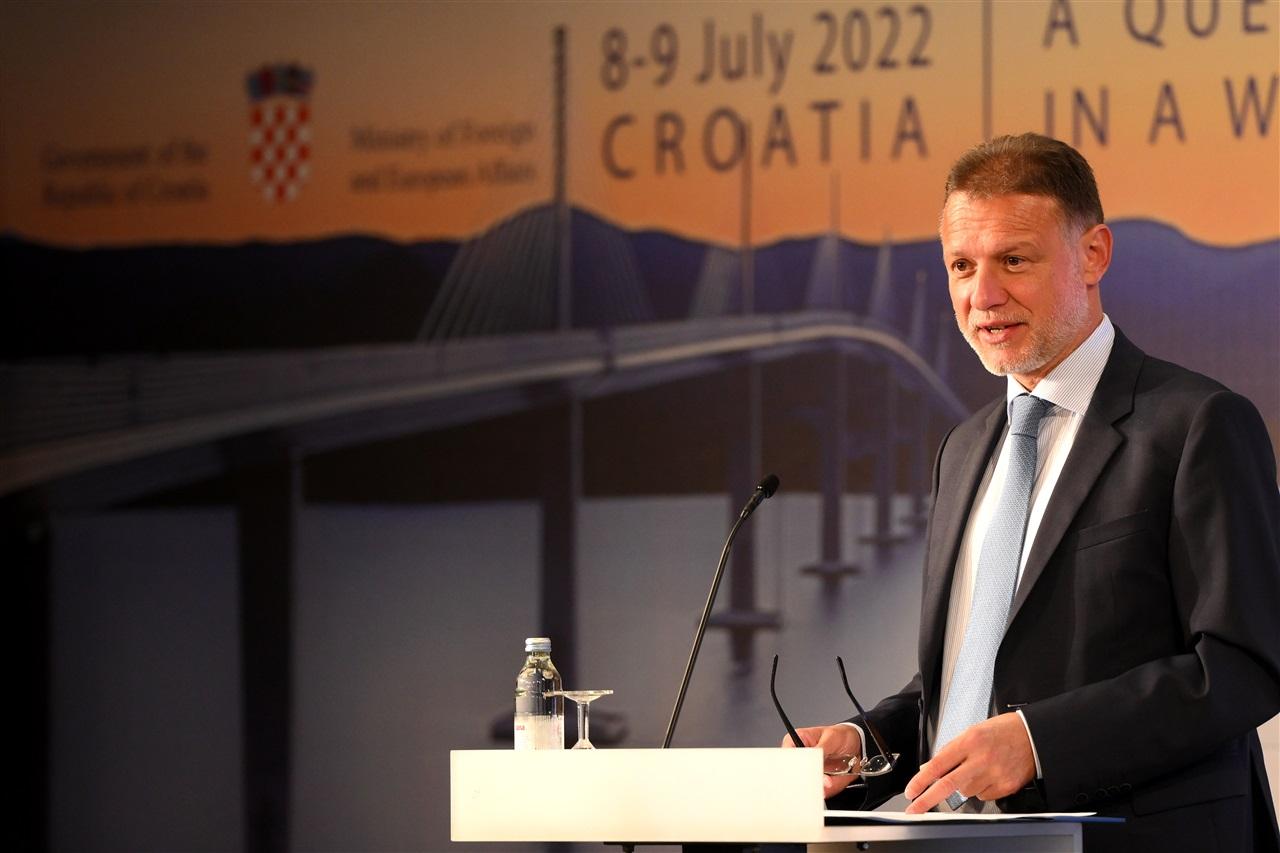
Zagreb - The war in Ukraine has caused tectonic changes in the global economy with a massive negative impact, notably in Europe due to the sanctions against Russia, Croatian Parliament Speaker Gordan Jandroković said at the Dubrovnik Forum on Saturday.
Russia is among the biggest gas, crude oil and coal exporters and many European countries are highly dependent on Russian energy, he said, adding that the sanctions resulted in shortages as well as higher prices of gas, refined products and electricity.
Russia's military aggression against Ukraine is also affecting food supply, with food prices jumping and inflation reaching record figures, he said.
Millions of tonnes of grain are blocked in Black Sea ports and Ukraine currently can't fulfill its role of Europe's granary, Jandroković said. "Limited access to energy, dependence on imports and fear of possible food shortages have led to states turning to interventionism and creating a new paradigm of economic activity."
Years of progress, development and well-being, and the consequences of superficiality, consumerism and even decadence, have weakened our resilience and possibility to respond to this kind of crisis, he said.
The EU is therefore working fast to strengthen alternative energy and food supply sources, to diversify energy supply sources and routes, to accelerate the introduction of renewables, and to improve energy efficiency, he added.
This is an opportunity for EU member states to free themselves of the dependence on Russian energy but also achieve their climate targets, Jandroković said.
Alongside the green and digital transition, it's necessary to continue to stimulate food production in order to achieve self-sufficiency, he said.
Croatia has ensured gas supply thanks to the LNG terminal on Krk island and oil supply thanks to the JANAF pipeline, he said and welcomed the government's announcements that the capacities of the two would be expanded. This, he added, will make Croatia a regional energy hub and its neighbours will benefit, too.
Jandroković expressed fear that the Ukraine crisis might spill over to other parts of Europe, notably the sensitive southeast.
"The key challenges for the stability of that region are the outstanding issues stemming from the conflicts in the 1990s. Russia is using this vulnerability to expand its already considerable influence in the region, notably in Serbia and Bosnia and Herzegovina."
Croatia supports EU enlargement to Southeast Europe, considering it an investment in security, peace, stability and prosperity, Jandroković said.
In order to maintain that stability, it's necessary to support the European perspective of BiH, its sovereignty and territorial integrity based on non-discrimination and the equality of the three constituent peoples - Bosniaks, Serbs and Croats, he added.
That can be achieved only through electoral reform which would recognise the decisions of the BiH Constitutional Court and the European Court of Human Rights on the elimination of the discrimination and inequality in the country's electoral system, he said.
Croatia has been pushing for BiH's European path for years, he said. "We share a 1,000-kilometre-long border and numerous historical, economic and cultural ties. BiH is our friend and neighbour where about half a million Croats live, who are also European Union citizens," he said, adding that together with Kosovo, BiH was the only country in Southeast Europe without EU candidate status.
Jandroković said he was pleased that, at Croatia's initiative, the issue of Croats in BiH had been recognised at the European level and prompted the European Council to clearly express willingness for the first time to grant BiH candidate status, with the message that the election law must be urgently reformed.
That reform would enable the constituent peoples to elect their legitimate representatives in government, as guaranteed by the Dayton-Paris agreement, he said, adding that the issue of Croats in BiH could be solved only by agreement.
He went on to say that this was the age of "disruptive business models" - digitalisation, new technologies, robotics and artificial intelligence - and pointed to challenges such as cyber-attacks, fake news and disinformation.
"Russian propaganda and cyber attacks are part of the war in Ukraine. Therefore it's necessary to strengthen society's resilience to disinformation in the public sphere and strengthen media literacy," he added.